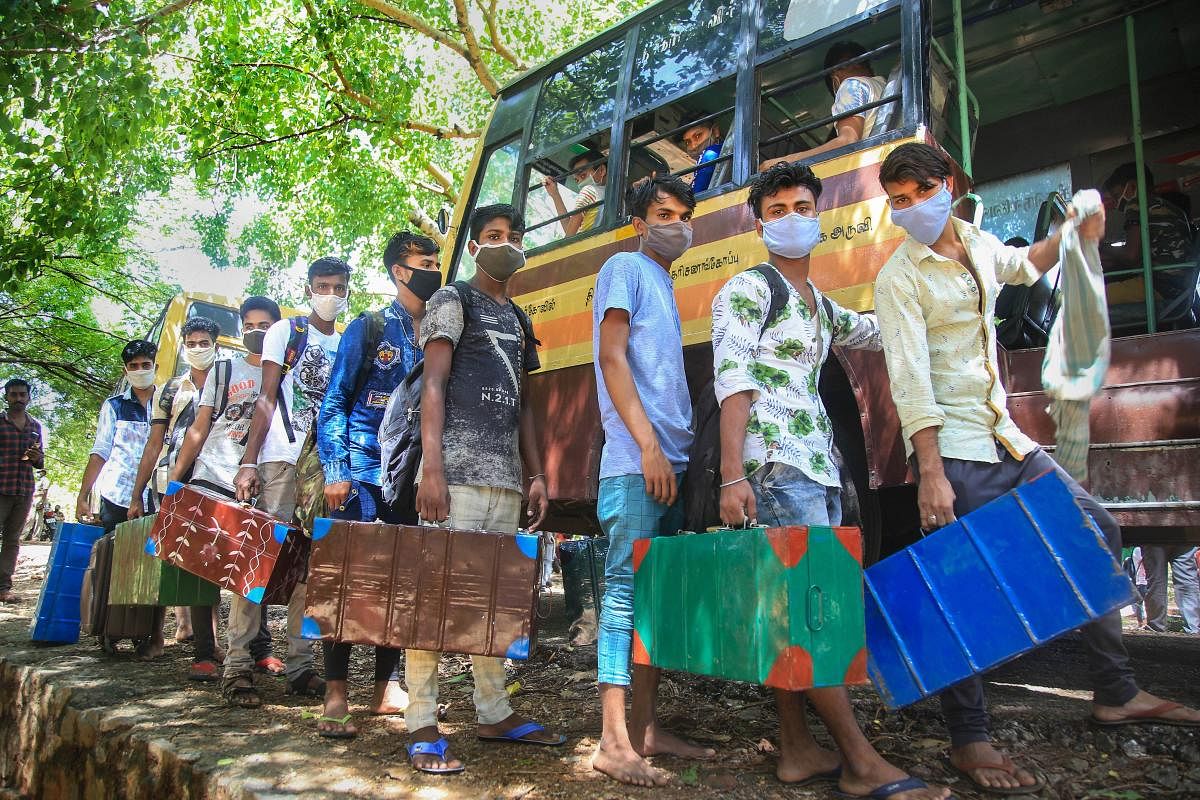Our true character is revealed not in times of comfort and abundance but in times of distress and adversity. The lockdown has shown how we respond to our people during our worst times. While we have seen a massive outpouring of relief and aid from private organisations, we are also witnessing that the ones discriminated the most by the State and private individuals in terms of access to food, shelter, healthcare and dignity have been the poor, migrant workers, transgender persons, sex workers and healthcare workers among others. The government responses to the health pandemic are exposing the most vulnerable groups to discrimination.
The plight of migrant workers has been the most visible, due to the sheer numbers of them walking across the country crossing hundreds of kilometres on foot because of a total lack of access to food, livelihood or shelter. There are others who have not been so visible. The transgender community, mostly surviving on sex work and begging, has been struggling during the lockdown due to a complete absence of food, having no ration cards and hence unable to get food grains from the public distribution system, shorn of all their sources of livelihood due to the lockdown, no access to medicines for HIV/AIDS, unable to pay rents for their homes and also blamed for spreading the virus due to the stigma they face. This has even led to transgender persons committing suicide.
The results of the lockdown have highlighted that our constitutional framework for equality is inadequate. Our constitutional fundamental right to equality under Article 14 and non-discrimination under Article 15 cannot come to our rescue during this time. Article 15 prohibits discrimination based on caste, race, sex, place of birth or religion but does not prohibit discriminatory treatment on the basis of so many other grounds that we are witnessing, such as migrant status, gender identity, occupation and socio-economic disadvantage.
Migrant workers are in a special situation during this time, with no livelihood and no income to enable them to buy food grains. Many are without shelter as they have been forced out of their housing due to industries closing. Most of them do not have ration cards or their ration cards are from other states making them invalid. Migrant status not only deserves protection from discrimination in the context of the lockdown, but in other contexts as well such as in schooling, where migrant children are the ones with least access to public education and most likely to drop out.
Discrimination on the basis of one’s occupation is being faced most acutely by sex workers and trans persons who are without any means of livelihood due to the physical distancing norms. Sex workers and healthcare workers have been facing stigma and harassment for being carriers of the virus. In Pune, 22 members of staff of a multi-speciality hospital were forced to vacate their accommodation as they had treated a Covid-19-positive patient and were thought to be infected. Nurses working at Victoria Hospital in Bengaluru were evicted from their paying guest accommodations based on the perception that they are infected with the coronavirus.
We are also witnessing discrimination based on socio-economic disadvantage at a massive scale. ‘Socio-economic disadvantage’ can be elaborated to mean a status of social or economic disadvantage resulting from poverty, level or source of income, homelessness, place of residence, or family background. The poor and the homeless have been the worst affected in this lockdown. As Professor Sandra Fredman points out, recognising socio-economic disadvantage as a ground of discrimination will also bring tangible benefits for the ‘traditional’ discrimination grounds, as many of those who are disadvantaged are women, members of Schedule Castes and Schedule Tribes, religious minorities, transgender persons, persons with disabilities or members of other groups at risk of discrimination.
At this time, we do not have in place an equality legislation that would provide a framework to address such stigma and discrimination and impose positive duties and obligations on governments and private actors to ensure that all their actions and measures are non-discriminatory. Constitutional protections would not cover discrimination by private persons such as landlords and housing societies. Article 15 would also not cover systemic or structural discrimination by the government’s policy, such as the absence of any measures for food security, travel or housing for migrant workers and the socio-economically disadvantaged during the lockdown.
We thus need a broad and overarching equality law to cover all these protected characteristics and also to have innovative remedies in place to address inequality. The UN Human Rights Council’s Universal Periodic Review of India in 2017 has overwhelmingly recommended that India needs to strengthen its national framework to reduce all kinds of discrimination and to promote and protect the human rights of all its citizens in an inclusive manner, to fulfil the Sustainable Development Goal 10 of reducing inequality and discrimination.
It is high time that we start the conversation for an equality law that would include the protected characteristics of migrant status, gender identity, occupation and socio-economic disadvantage in addition to other protected characteristics of caste, religion, race, ethnicity, descent, colour, sex, sexual orientation, nationality, disability, among others. If the pandemic can push us to work on legislation that would aim to address the gross inequality we are witnessing, it would be a silver lining.
(The writer is Executive Director, Centre for Law & Policy Research, Bengaluru and Senior Advocate practicing in the Supreme Court)
